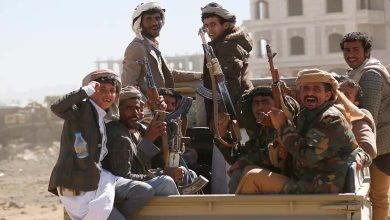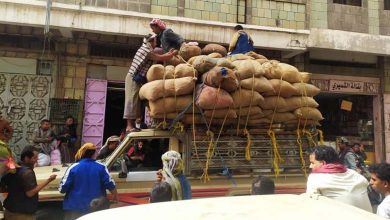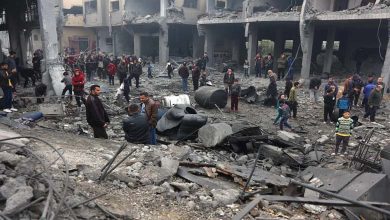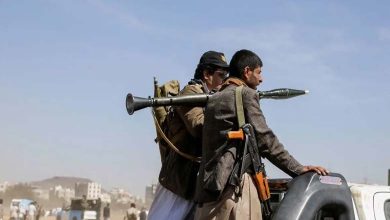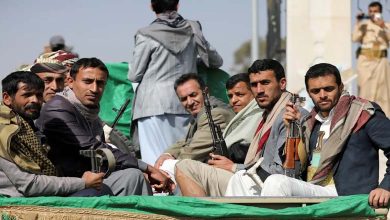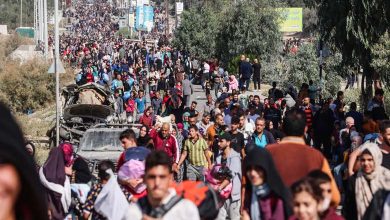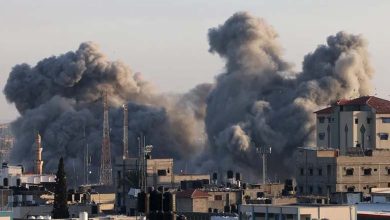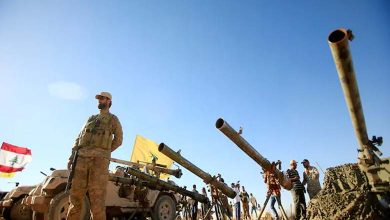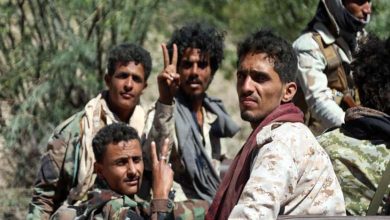Hell on Earth… Gaza Hospitals Witness Worst Humanitarian Disasters in Modern History

Every morning, mothers arrive at the doors of “Al-Awda” Hospital in northern Gaza in desperate search of infant formula, said the hospital’s director: Many mothers of newborns are unable to breastfeed due to malnutrition, as everyone is hungry with no access to food or clean water.
Malnutrition
According to the British newspaper “The Guardian,” the situation in Gaza is dire, both inside hospitals where doctors are treating malnourished patients alongside their regular cases, and outside where surgeons report performing increasing numbers of limb amputation surgeries due to the effects of acute hunger.
Mohammed Salehah, acting director of Al-Awda Hospital, said: “Everyone here has lost more than a quarter of their body weight due to malnutrition, there is no food.”
Salehah, an orthopedic surgeon, receives treatment at the hospital including medication and vitamins to address conditions resulting from acute hunger, stating: “I can truly say I have become weaker.”
He added: “We are witnessing an increase in infections among patients, and after surgeries, these individuals need good nutrition to aid their recovery.”
Salehah continued: Malnutrition means more infections, including gangrene, which in turn means more limb amputations.
Imminent Famine
The newspaper confirmed that for several months, relief organizations struggled to deliver food to an estimated 300,000 people in northern Gaza, with the World Food Programme recently warning that famine has either already occurred or will start before July.
The crisis worsened last week when the World Central Kitchen charity, the only organization outside the United Nations regularly providing hot meals, suspended its operations after Israeli airstrikes killed seven of its staff.
Abeer Attiyeh, spokesperson for the UN World Food Programme in Cairo, said: “WCK was feeding around 500,000 people daily with hot meals.”
She continued: “We feed over a million people every month, and UNRWA [the United Nations Relief and Works Agency for Palestine Refugees] provides food to people monthly, and the three of us are really working to avert this famine.”
Attiyeh added: “But this will not succeed unless humanitarian workers operate in a safe environment – there must be respect for their protection, due to the urgent need to reach the most vulnerable groups throughout Gaza.”
Israeli Obstinacy
According to the British newspaper, Israeli authorities announced on Friday, after a phone call between US President Joe Biden and Israeli Prime Minister Benjamin Netanyahu, that they would temporarily reopen the Erez crossing to northern Gaza and allow more aid to enter through the Ashdod port into the sector’s northern region.
To reach more people in northern Gaza, Israeli officials responsible for entry points into the sector will have to change their approach to dealing with humanitarian convoys, which relief groups say are subject to a chaotic approval system that cannot be predicted.
This applies particularly to northern Gaza, where Israel has prevented UNRWA, the largest aid organization operating in Gaza, from providing assistance.
Juliette Touma, communications director at the organization, said: “We call on Israeli authorities to reverse their decision preventing UNRWA from accessing northern Gaza with food supplies, the situation is rapidly moving towards famine and UNRWA must be allowed to do its job.”
Attiyeh said: The WFP resumed delivering aid to northern Gaza last month after having to suspend delivery operations due to security issues in February.
In a report published last week, Oxfam, the relief organization, said that people in northern Gaza are living on an average of 245 calories per day – less than a can of beans.
Scott Paul, the organization’s director, said: “In the north, we are talking about a famine situation, where putting food on someone’s doorstep, dropping it from the sky, or unloading it from the dock is a dangerous affair.”
He added: “It’s not just minimally helpful, but it can be dangerous for people suffering from severe malnutrition.”
Paul continued: “The kind of humanitarian assistance needed to pull people back from famine… will involve flooding the area with people, medicines, and medical supplies, and this requires a type of operating environment that we have never come close to having at present.”
-
Tragic Disaster… Witnesses of the Flour Massacre Describe Scenes of Horror, Chaos, and Death in Gaza
Hell on Earth
Dr. Umia Khemash, who heads the Health Roots organization, said that people trapped in northern Gaza are living “hell on earth.”
He added: “We have tried several times to deliver food supplies, and once managed to get a truck loaded with food, but it was bombed, and 20 people died, food in particular is a major problem in the north.”
He noted that doctors working with him in the north have noticed the emaciation in children, a sign of acute hunger, saying: “Their bones have become visible and they have become extremely thin, and many also suffer from dehydration, diarrhea, and infections.”
Salehah, the doctor at Al-Awda Hospital, described eating animal fodder as feed, saying: Local residents were grinding dry animal feed to make bread, as there was little flour available.
He added: “When airdrop operations arrived, I saw people fighting, they were dying trying to get food for themselves and their children.”


